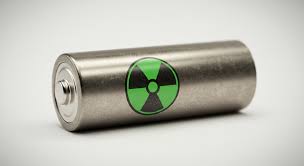Scientists are developing a small nuclear battery that can operate for decades without recharging.

A research team has unveiled a small nuclear battery innovation capable of providing devices with energy for decades without the need for recharging, potentially revolutionizing the world of traditional batteries.
Reports indicate that the current reliance on lithium-ion batteries in portable devices faces significant challenges, such as limited lifespan and negative environmental impact due to costly mining operations.
Dr. So Il In, the lead researcher at the "Daegu Gyeongbuk" Institute of Science and Technology in South Korea, explained that lithium-ion batteries have nearly reached their maximum capacity, prompting scientists to search for more efficient and sustainable alternatives.
The team developed their innovation using carbon-14, a safe radioactive isotope extracted as a byproduct from nuclear reactors, emitting low-risk radiation that can be contained with special materials. When these particles interact with a titanium dioxide semiconductor, a continuous electric current is generated without the need for recharging.
Due to the slow decay of radioactive carbon, it is expected that this battery will theoretically operate for a lifetime, making it ideal for long-term applications, especially in the medical field, such as pacemakers and smart implants.
Dr. So emphasized that this innovation paves the way for integrating safe nuclear energy into small devices, expanding usage possibilities in various fields while reducing the environmental impact of traditional batteries.